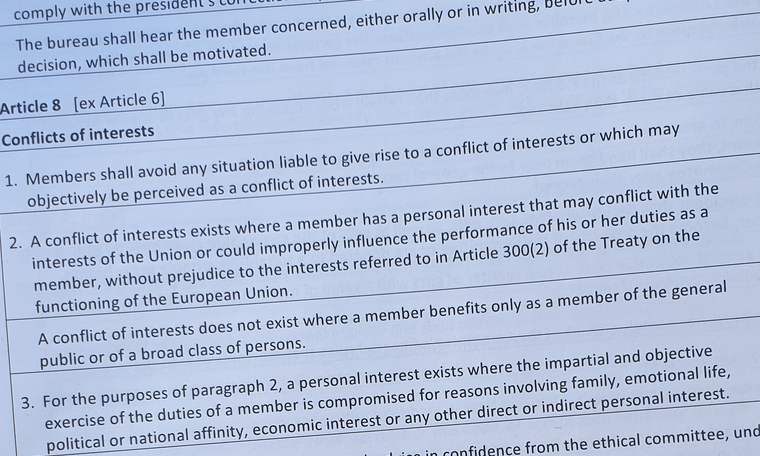By: V4 Agency
A document obtained by V4NA shows that, according to Brussels, representing national interests compromises the interests of the EU as a whole. In fact, member states’ interests are considered tantamount to corruption, potentially resulting in the expulsion of guilty delegates from the various committees.
In the eyes of Brussels bureaucrats, representing national interests can be out right compromising, according to a leaked document.
“Conflicts of interest occur where a member’s own personal interests conflict with those of the Union,” reads the European Economic and Social Committee’s (EESC) new draft ethical standards, a document handed to V4NA by a person “close to the EESC administration”.

The third paragraph of Article 8 of the document already specifies personal interest as a notion and interest which “impedes the impartial and objective exercise of the duties of a member for reasons involving family, emotional life, political or national affinity, economic interest or any other direct or indirect personal interest.”
The committee’s leadership is therefore not only indirectly stating that national interests (i.e. the interests of member states) are not congruent with the interests of the Union, but the committee is referring to member states’ interests in the same package of regulations that governs conflicts of economic and financial interest (Article 7), more commonly known as corruption. In addition, the proposal also concerns setting up an ethical committee that can sanction conflicts of interest, even by excluding a member.
It is also important to note that EESC members are appointed by the member states, they enjoy diplomatic immunity and only the member states have the right to recall them before the end of their mandates, except for cases when delegates simply refuse to attend the committee’s sessions. Therefore, the termination of a member’s mandate compares to the European Parliament voting out an MEP delegated by a member state in a legitimate manner.
V4NA has contacted EESC’s press department to request information with regards to when they are planning to implement the new ethical standards we have obtained, which will penalise the representation of member states’ interests; how have the committee’s leaders come to the conclusion that the EU’s common interest is not the sum of its member states’ interests and where conflict of interest between the two may arise; and on what basis the interests of the European Union are determined if not on the interests of member states?
The European Economic and Social Committee acts as an advisory body assisting the European Commission, the European Parliament, and the European Council and, according to its own definition it serves as “a bridge between Europe and organised civil society”.

